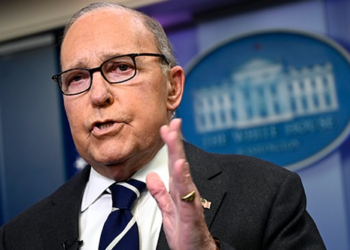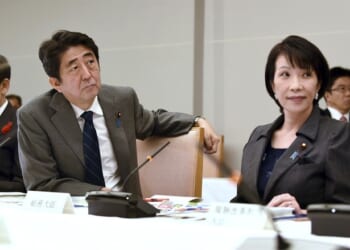
A Presbyterian pastor from Anchorage has entered the race for Alaska’s lone U.S. House seat in hopes of unseating freshman Republican Rep. Nick Begich.
Like former Rep. Mary Petola, an Alaska Democrat who managed a political upset in the special election to replace the late Rep. Don Young in 2022, Rev. Matt Schultz is banking on voters looking past party labels.
“Alaskans aren’t red or blue first, we’re independent and practical,” he said in a statement.
But Republicans say Mr. Schultz is too radical for the at-large seat in a state that broke for President Trump by a margin of about 13 percentage points in the 2024 election.
“Far-left radical Matt Schultz is completely out of touch with the people of Alaska,” NRCC spokesman Zach Bannon said. “Schultz will be resoundingly rejected along with any other extreme liberal foolish enough to embarrass themselves in this race.”
Among the criticisms leveled by some in the GOP against Mr. Schultz is his support for the LGBT agenda. He previously urged Alaskans to vote down a bill banning transgender people from using bathrooms that did not correspond to their biological sex. A majority of the state’s voters rejected the ballot measure in 2018.
He also came out against so-called conversion therapy, in which Christian counselors have sought to change sexual orientation or gender identity to a person’s gender at birth. According to reports, Mr. Schultz accused parents and churches that were acting on behalf of children in conversion therapy of seeking to harm them.
“No parent has a right to abuse. No religious institution has a right to abuse,” he said.
Mr. Schultz, who wears a pride-flag pin with his clerical collar when conducting services at Anchorage’s First Presbyterian Church, has been criticized for other progressive stances. That includes urging congregants and followers to get vaccinated during the COVID-19 pandemic.
“Please understand me as a person who has spent his entire life studying the Bible … please get the vaccine as an act of faith,” he said in a 2021 video posted to social media.
Mr. Schultz’s campaign rejected the “political name-calling” from opponents, touting his support of faith-based and kitchen-table issues that appeal broadly to Alaskans.
“I’ll work with anyone to cut the cost of groceries, fuel, and heat; support responsible resource development and good jobs; and keep clinics open in every community,” Mr. Schultz said. “I’m a pastor, I listen, I show up, and I treat people with respect, including those who disagree with me. My focus is results for Alaska, not culture wars.”
Alaska’s ranked-choice voting system, first implemented in the election that elevated Ms. Petola to Congress, has shifted the political calculus. It gives the advantage to those with more funding and name recognition, while also eroding the influence of political parties and rendering primaries moot.
Mr. Begich has criticized the system, and sought earlier this year to advance legislation to end ranked-choice voting in federal elections.
“The nation does not need more uncertainty and confusion injected into the federal election process,” he said in an April press release.
“One person, one vote’ is a proven, tried and true method that is easy to understand, easy to audit, and quick to report,” he said. “Experiments with our national election systems risk disenfranchisement of voters and lead to outcomes that do not represent the true will of the American people.”
While Mr. Begich faces the prospect of having votes poached by other nominally Republican candidates running to his left or right, an early endorsement by President Trump might help to keep intra-party challengers at bay.
Mr. Schultz’s campaign is more willing to embrace the ranked-choice system, saying it “rewards candidates who earn trust across the spectrum.”
A campaign spokesperson said Mr. Schultz was not specifically focused on teaming up with other candidates to take down the incumbent, but that he was focused on courting as broad a coalition as he could from across the political spectrum.
“We’re not in the business of impeding other entrants; we’re making the case that Matt is the most accessible, Alaska-first candidate in the race,” said Schultz spokesperson Mai Linh McNicholas. “He’ll be everywhere in the state, take questions from Alaskans, and focus relentlessly on the cost of living. Endorsements don’t cut grocery bills, showing up and delivering does. That’s our contrast and our path.”










